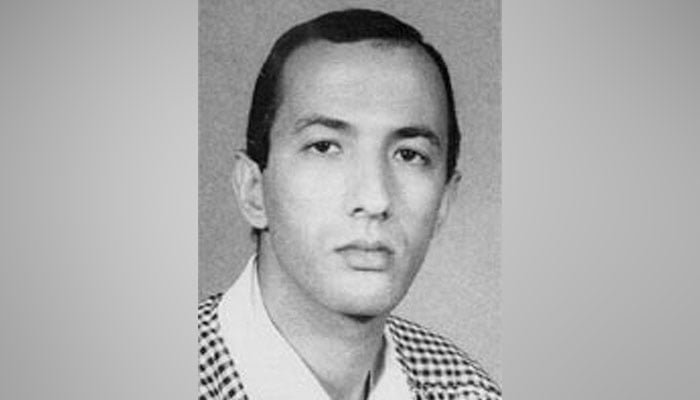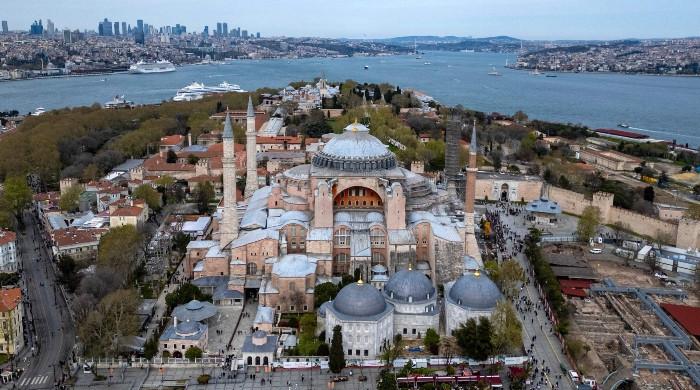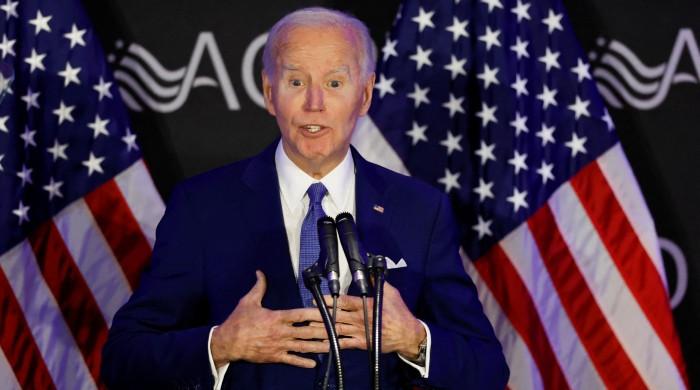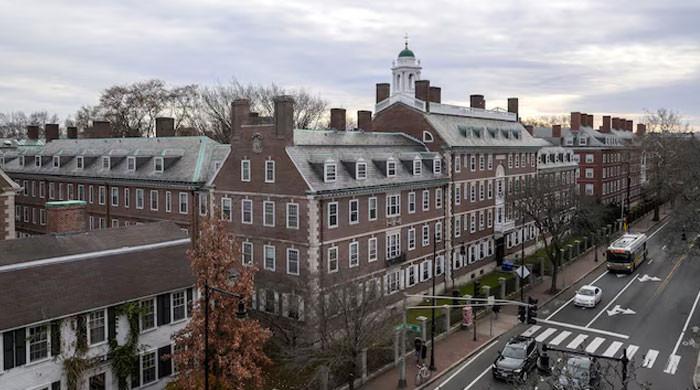Al Qaeda's new leader Adel has $10 million bounty on his head
Zawahiri's death piled pressure on group to choose strategic leader who can carefully plan deadly operations, experts on al Qaeda say
February 16, 2023

- Seif al-Adel on FBI most wanted list.
- Evaded capture for decades.
- Senior trainer in Afghanistan camps.
DUBAI: Seif al-Adel, a former Egyptian special forces officer who is a high-ranking member of al Qaeda with a $10 million US bounty on his head, is now the "uncontested" leader of the group, according to a new UN report on the organisation.
Al Qaeda has not formally named a successor for Ayman al-Zawahiri, who was believed to have been killed in a US missile strike in Kabul last year, dealing a blow to the organisation since its founder Osama bin Laden was killed in 2011.
Although a US intelligence official said in January that Zawahiri's succession remained unclear, the United Nations report assessing risks from the group said: "In discussions in November and December, many Member States took the view that Seif al-Adel is already operating as the de facto and uncontested leader of the group."
Zawahiri's death piled pressure on the group to choose a strategic leader who can carefully plan deadly operations, experts on al Qaeda say.
Unlike his slain predecessors who maintained a high profile with fiery videos broadcast around the globe threatening the United States, the experts say Adel planned attacks from the shadows as he helped turn al Qaeda into the world's deadliest group.
Adel was indicted and charged in November 1998 by a US federal grand jury for his role in the bomb attacks on the US embassies in Tanzania and Kenya that killed 224 civilians and wounded more than 5,000 others.
There are few photos of him, aside from three pictures — including a very serious black and white image of him on the FBI's most wanted list.
Beyond the operations in Africa, his training camps and the link to the killing of US journalist Daniel Pearl in Pakistan in 2002, according to US investigators, little else is known about Adel.
The US State Department says Adel is based in Iran. The department’s Rewards for Justice programme is offering up to $10 million for information on Adel, whom it says is a member of "al Qaeda’s leadership council” and heads the organisation’s military committee.
The programme’s website says that after the Africa bombings, the former Egyptian army lieutenant colonel moved to southeastern Iran, where he lived under the protection of the country's Islamic Revolutionary Guard Corps.
He and other Al Qaeda leaders were placed under house arrest in April 2003 by Iran, which released him and four others in exchange for an Iranian diplomat who was kidnapped in Yemen.
Ali Soufan, a former FBI special agent who tracked al Qaeda operatives, wrote in a profile carried by the Combating Terrorism Centre that the militant whose nom de guerre means "sword of justice", has been described as a shrewd figure with a poker face. His real name is Mohammed Salahuddin Zeidan.
"Yet his temper, too, has become notorious. Possessed of a 'caustic tongue', he is apt to threaten violence against anyone who displeases him, and is known to meet disloyalty with swift and ruthless force," wrote Soufan.
"Toward underlings he can be contemptuous, even brutal, in the heat of the moment. But he has also been known as a font of avuncular advice. In happier times, he showed a talent for soccer and a penchant for practical jokes."
Once Osama bin Laden's chief bodyguard and a senior trainer of militants, experts say Adel began his long bloody career in 1981, when he was suspected of involvement in the assassination by soldiers of Egyptian president Anwar al-Sadat during a military parade in Cairo that was broadcast on television.
"Seif al-Adel's professional military background and valuable experience as the head of al Qeada’s military committee prior to 9/l1 mean he has strong credentials to assume the overall leadership of al Qaeda," said Elisabeth Kendall, an expert at Oxford University.
He takes over an al Qaeda that has become highly decentralised since the group carried out its most spectacular operation, the September 11 2001 airplane attacks against the United States which killed nearly 3,000 people.
Operative to leader
Adel, one of the few remaining al Qaeda old guard, has been close to the central command for decades, experts say. He would be tasked with providing strategic guidance to far-flung franchises in the Middle East, Africa and Asia that run their own day-to-day affairs, they added.
Some question though whether Adel can become an effective manager of the organisation after spending most of his career as an operative and trainer in camps.
One of al Qaeda's leading military chiefs and often called by experts its third-ranking official, Adel set up training camps for the organisation in Sudan, Pakistan, and Afghanistan in the 1990s.
He also played a role in the ambush of US helicopters in Mogadishu, known as the "Black Hawk Down" incident in 1993 which killed 18 US servicemen, security experts say. That marked the beginning of the eventual withdrawal of a US-UN peacekeeping force from Somalia.
The FBI identifies Adel as one of its most wanted terrorists and accuses him of conspiring to kill US nationals, to murder and destroy buildings of the United States.











